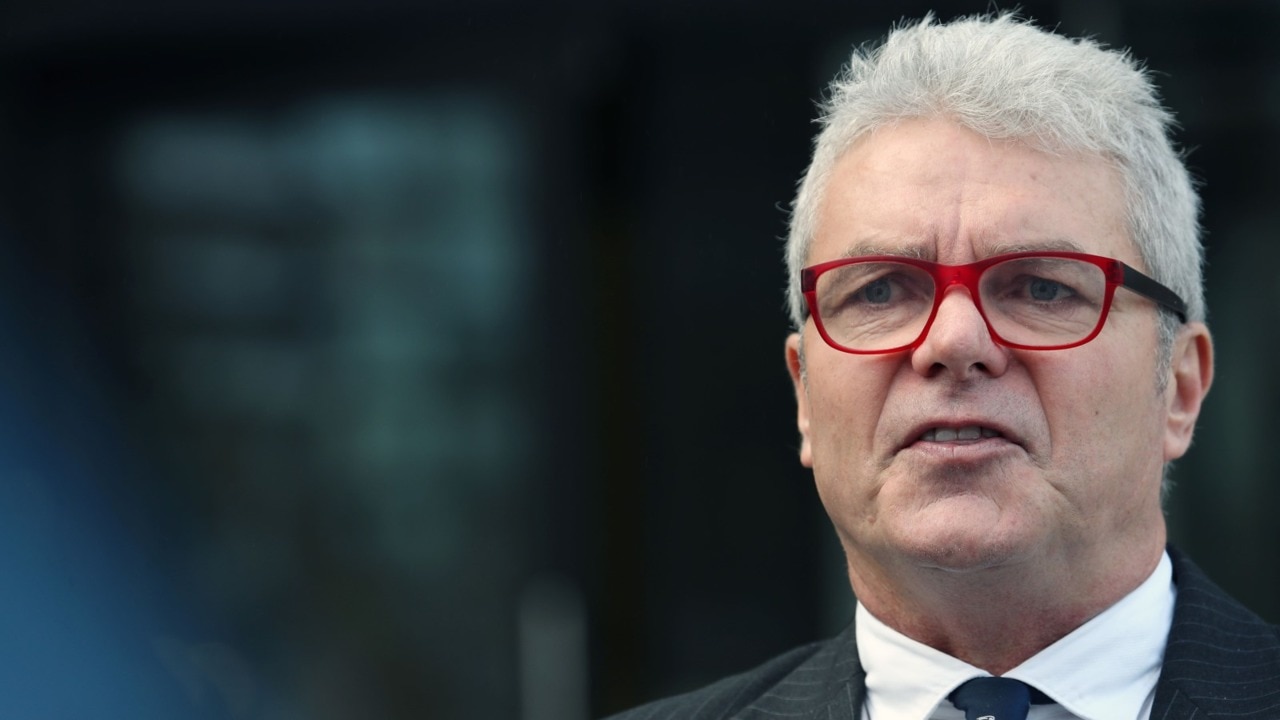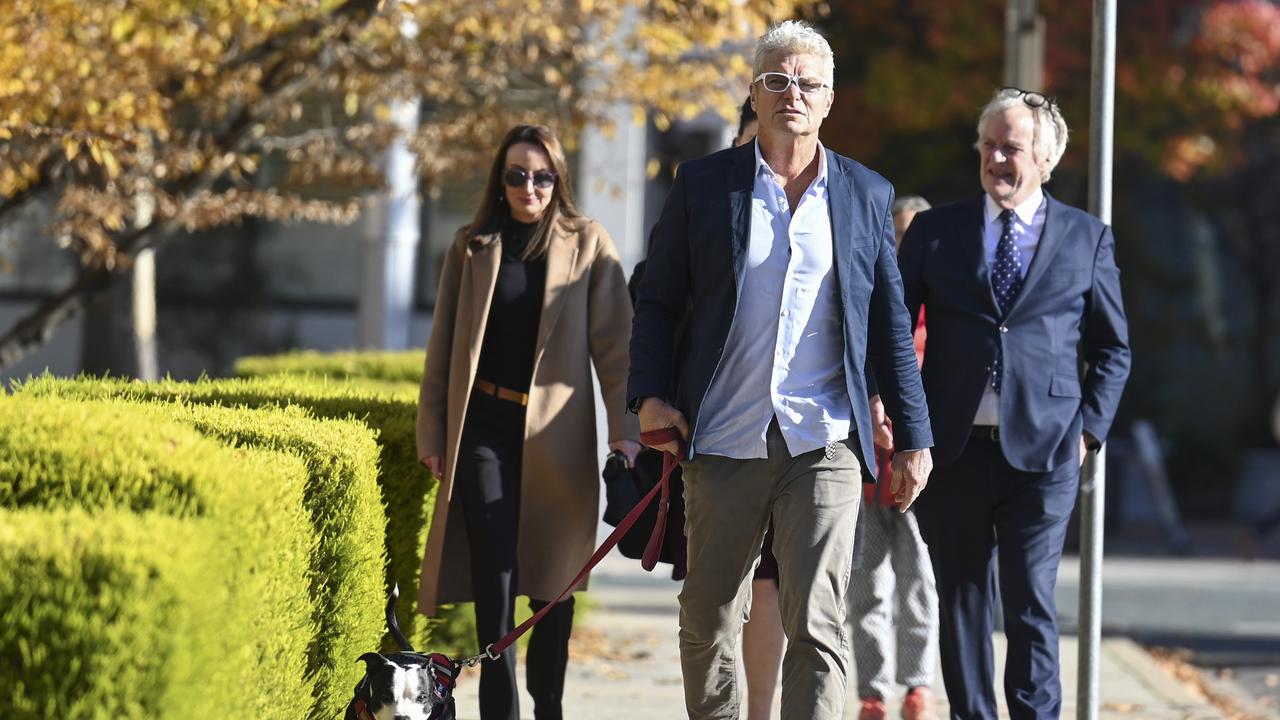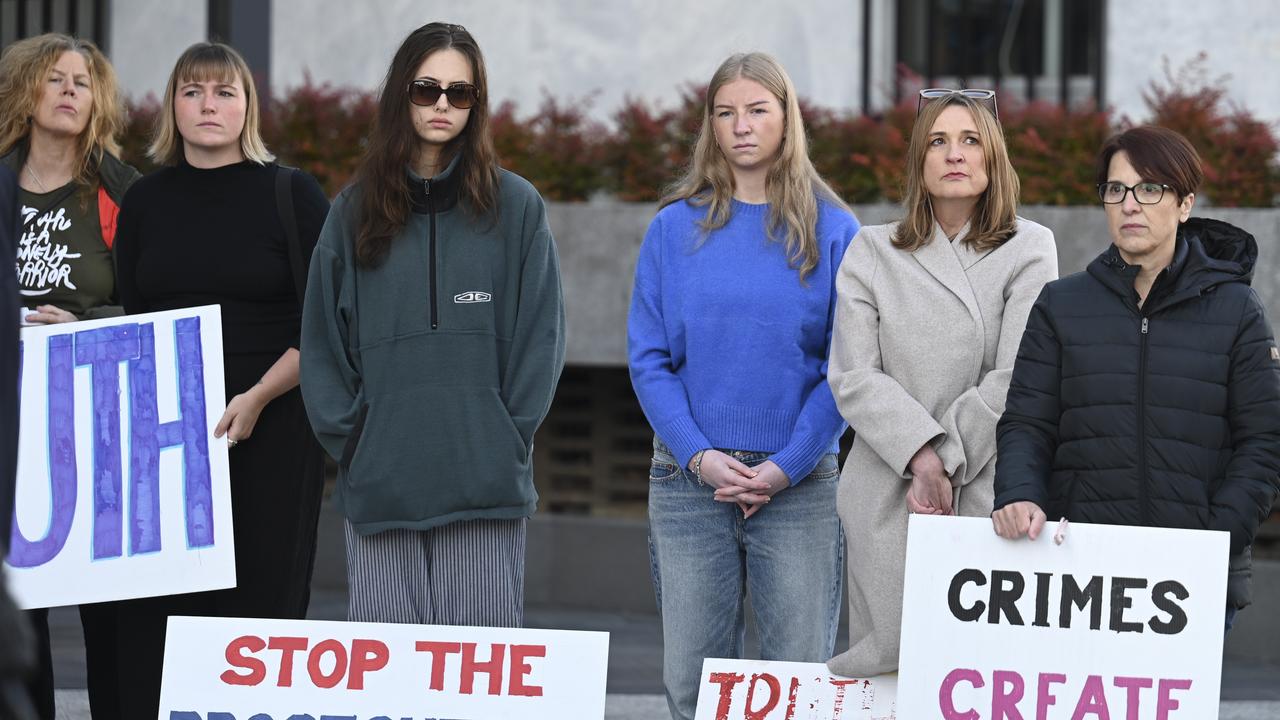David McBride sentenced to five years, eight months jail for leaking classified military documents
The wife of an army whistleblower who will go to prison for leaking military secrets has shared her devastation at the news.

Former military lawyer David McBride has been jailed for stealing and leaking secret military documents to journalists, marking an end to a years-long legal saga that will infuriate human rights advocates and put a spotlight on whistleblower protection laws.
The 60-year-old was sentenced to five years and eight months with a non-parole period of two years during his final sentencing hearing at the ACT Supreme Court on Tuesday.
It came after he pleaded guilty to two counts of disclosing military information and one count of stealing from the government.

After corrections officers took McBride into custody, his ex-wife Sarah said she was devastated to share the verdict with his two daughters, who were absent from the hearing.
“I am deeply disappointed and devastated for Dave, our girls, and this country,” she said.
McBride removed and copied a total of 235 documents from defence, 207 of which were classified as secret, during an 18-month period between 2014 and 2015.
He leaked the information to journalists, which led to a series of reports published by the ABC in 2017 that alleged misconduct by Australian special forces in Afghanistan
McBride’s lawyers had asked for leniency, arguing he shared the information with “honourable” intentions and out of a sense of personal duty.

ACT Supreme Court Justice David Mossop said McBride appeared to be a person of good character but had become “obsessed with the correctness of his own opinions”.
He said the military lawyer had shown no remorse for his actions and believed it was his duty to obtain and disclose the information to the public.
During sentencing hearings, McBride’s defence counsel argued McBride believed that good soldiers were going through serious trauma, which combined with his poor mental health, led him to steal sensitive information.
Judge Mossop said McBride’s poor mental well-being as a result of depression and PTSD had “made a material, if only minor, contribution ... to offending.”

Greens justice spokesman David Shoebridge, who has long supported McBride, described his imprisonment as the “definition of injustice”.
“A five-year prison sentence has sent a chill down the spines of truth-tellers across the country, just as what it was designed to do,” Senator Shoebridge said.
Human Rights Law Centre acting legal director Kieran Pender said the verdict marked a “dark day for Australian democracy”.
“The imprisonment of a whistleblower will have a grave chilling effect on potential truth-tellers. Our democracy suffers when people can’t speak up about potential wrongdoing,” he said.

Tuesday’s verdict will likely intensify debate around the state of whistleblower laws in Australia, which have fallen under scrutiny in recent years.
Attorney-General Mark Dreyfus announced reforms to the whistleblowing law for federal public servants last year after Labor pledged to close gaps in legislation ahead of the 2022 election.
The government is currently considering the results of a consultation process undertaken in late 2023 after it established a national anti-corruption commission last July.
Mr Dreyfus said the decision to prosecute McBride was the responsibility of the courts.
“The CDPP is independent of the government of the day – a very important feature of our criminal justice system,” he said.
Asked if he thought Australia’s whistleblower laws were “broken” after being asked by a Greens MP during question time, the prime minister abstained from commenting on the verdict.
“I’m not going to say anything here that interferes with a matter that is quite clearly, going to continue, to be before the courts,” Mr Albanese said.
McBride will be eligible for release on parole after 27 months.
His lawyers are expected to appeal his jail sentence.



